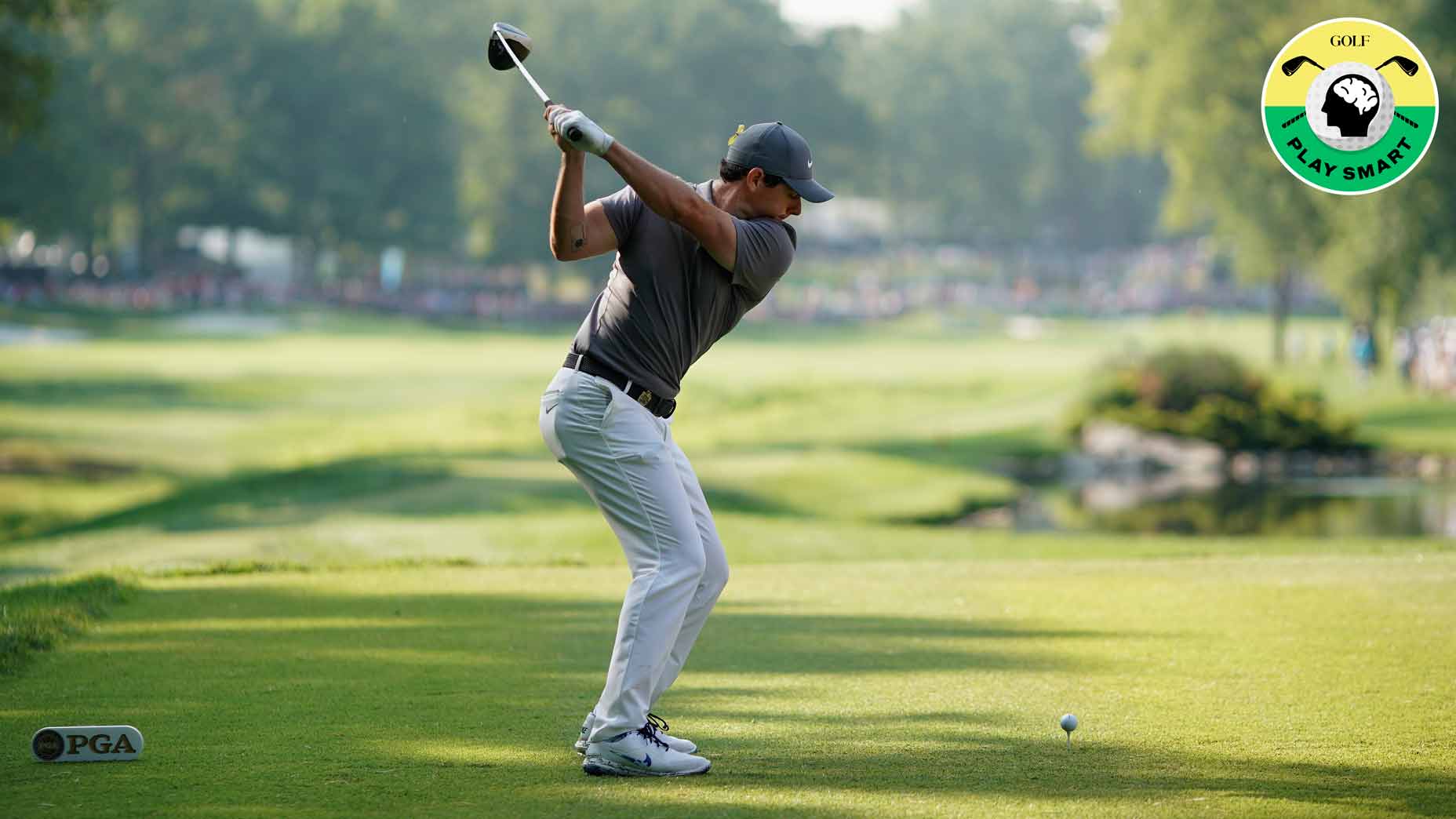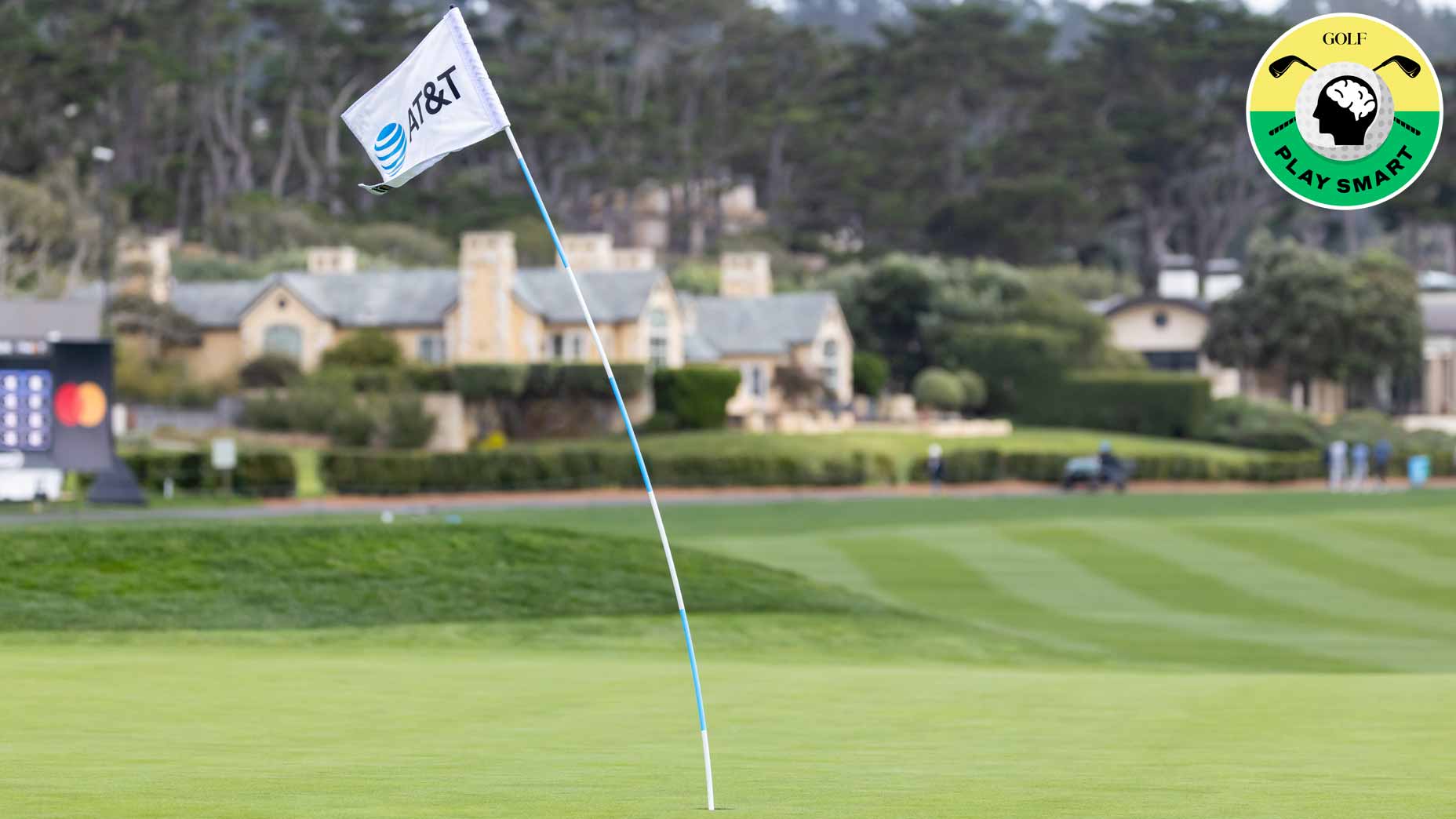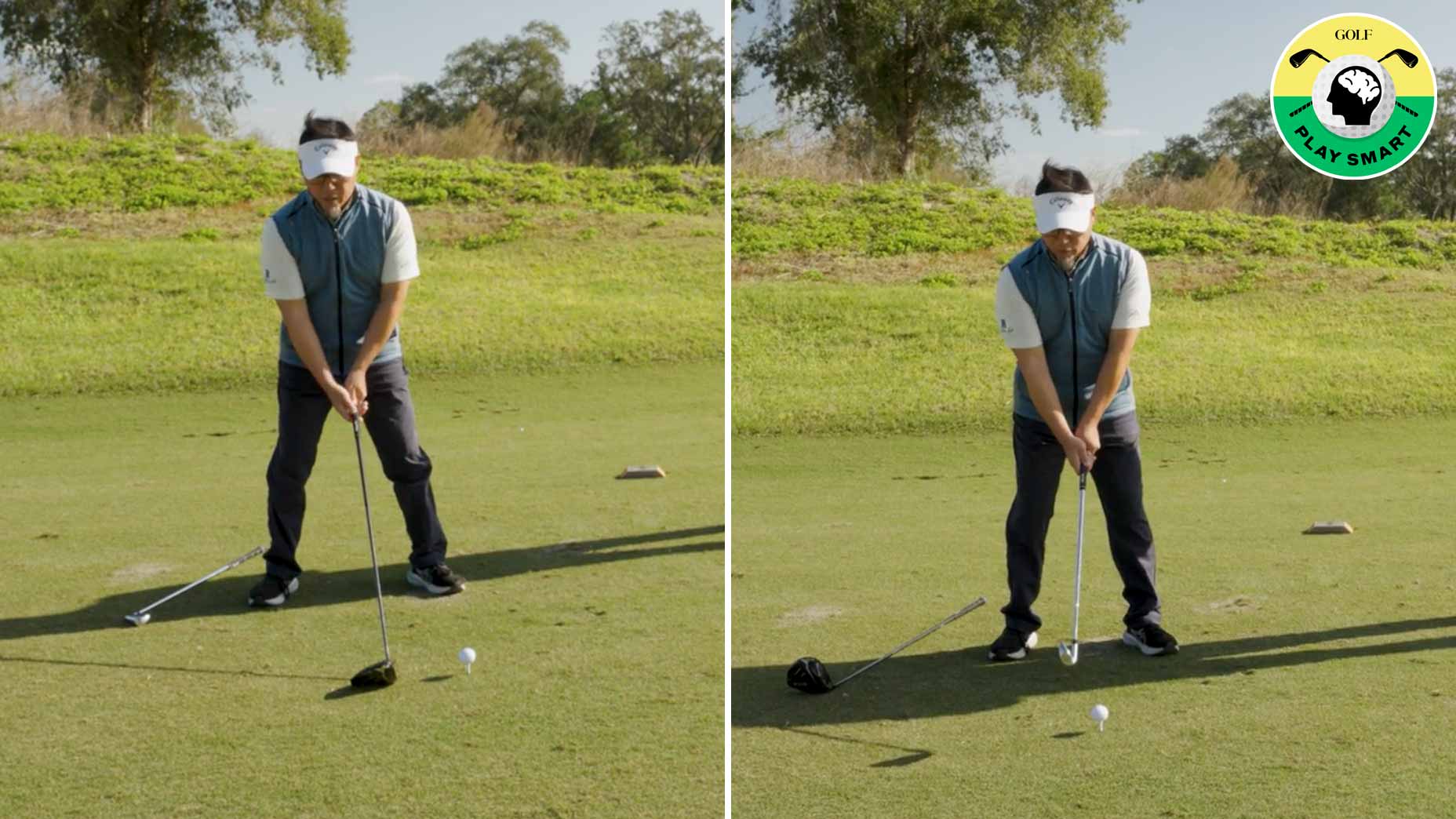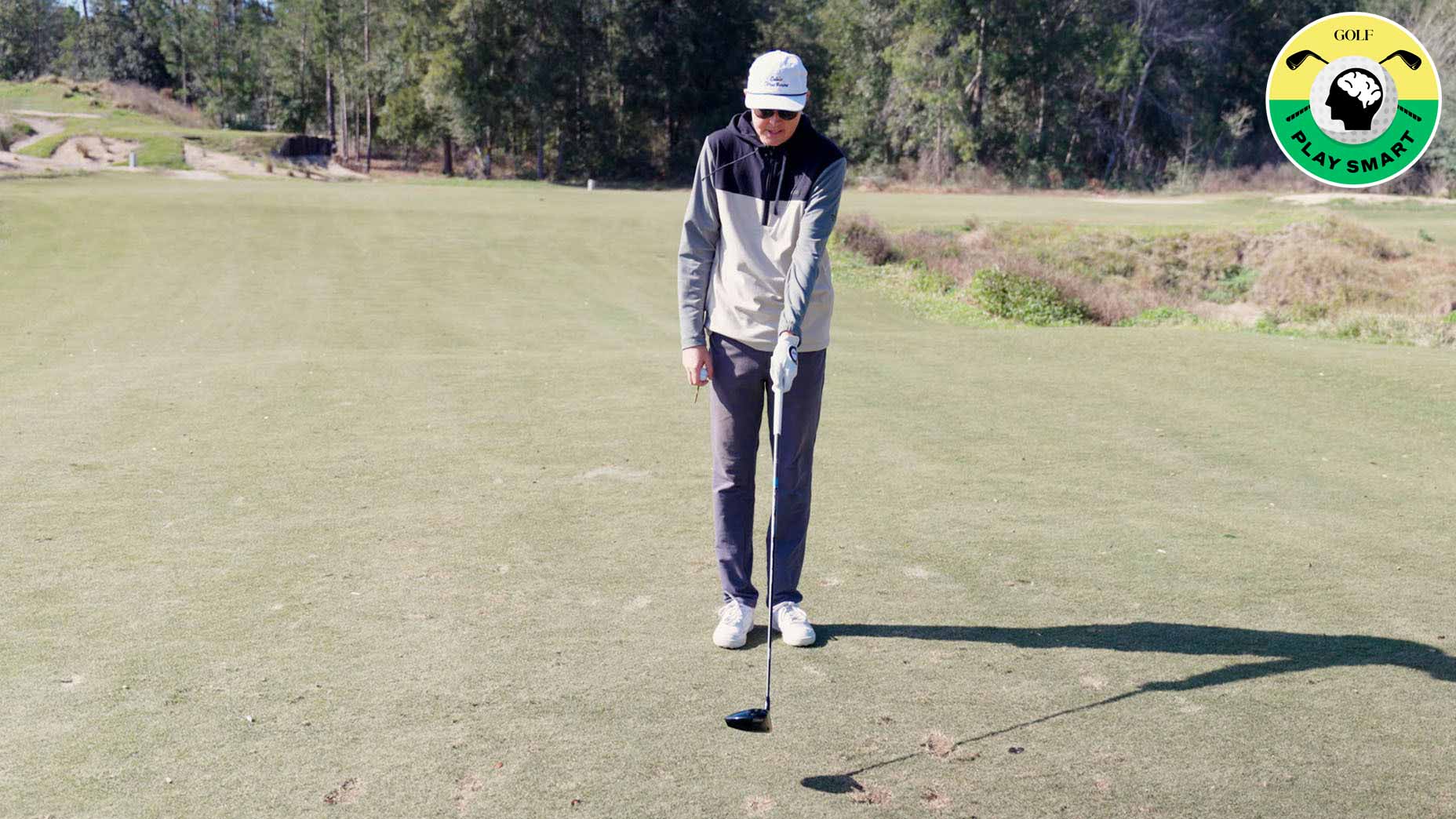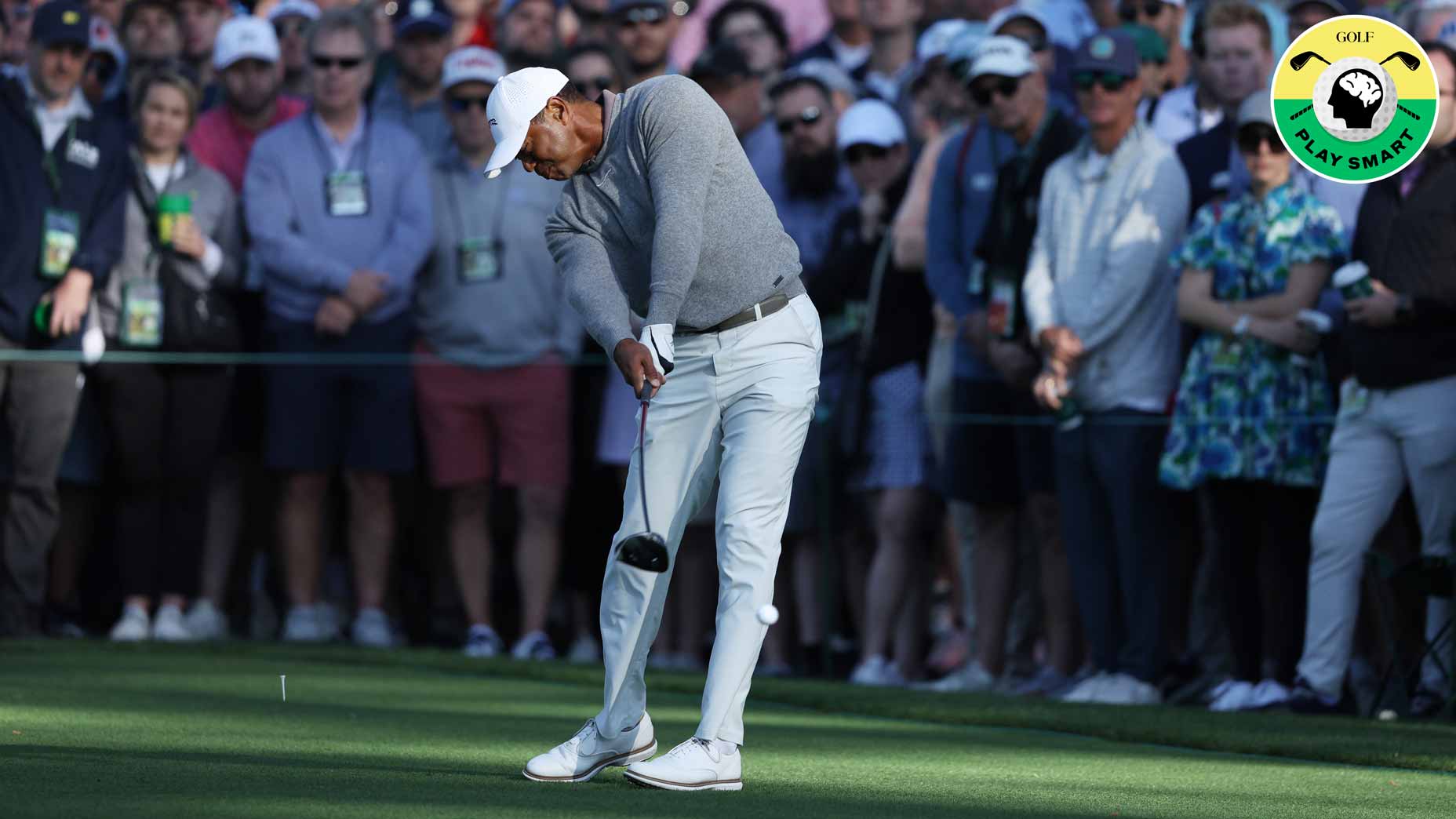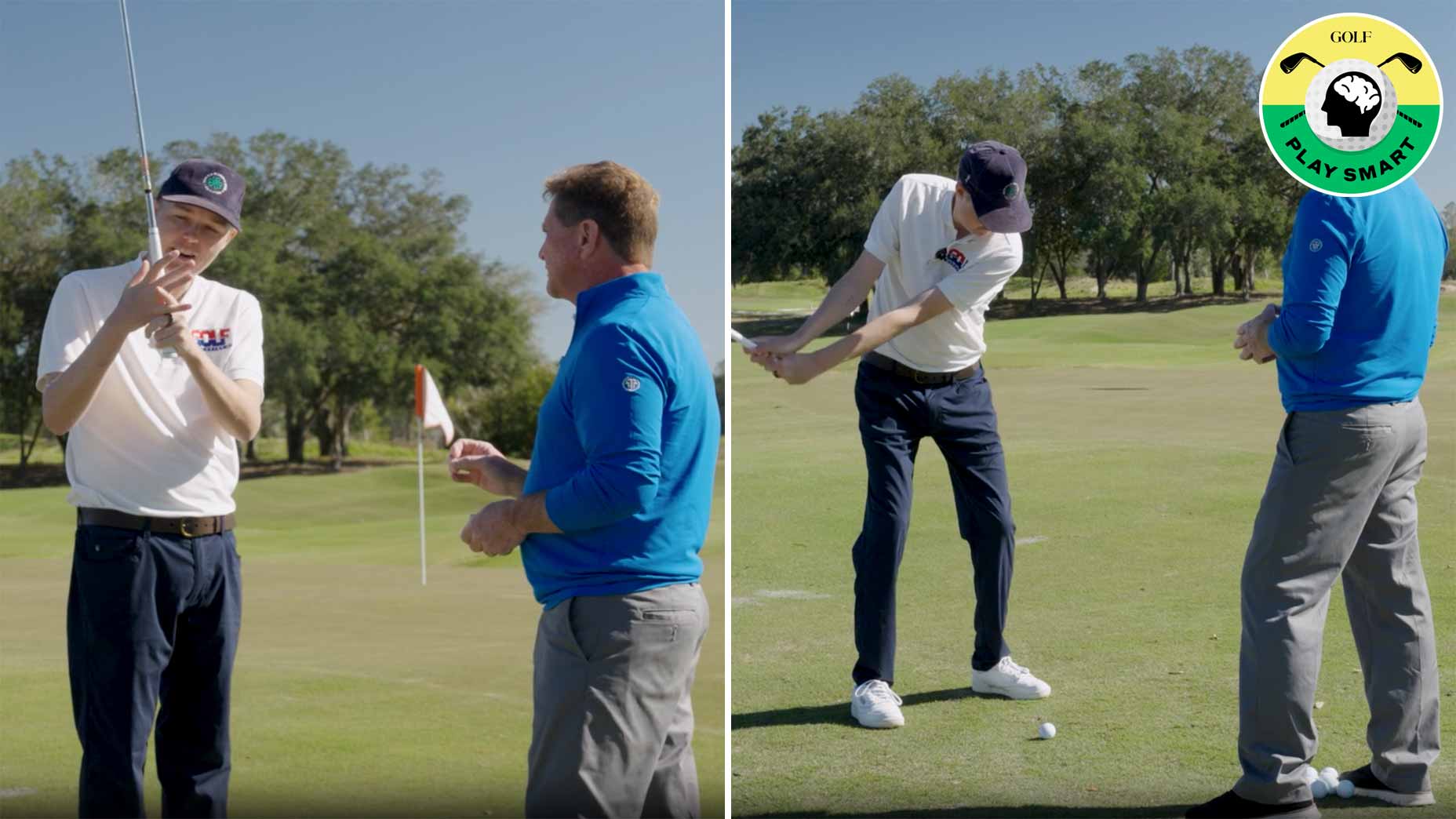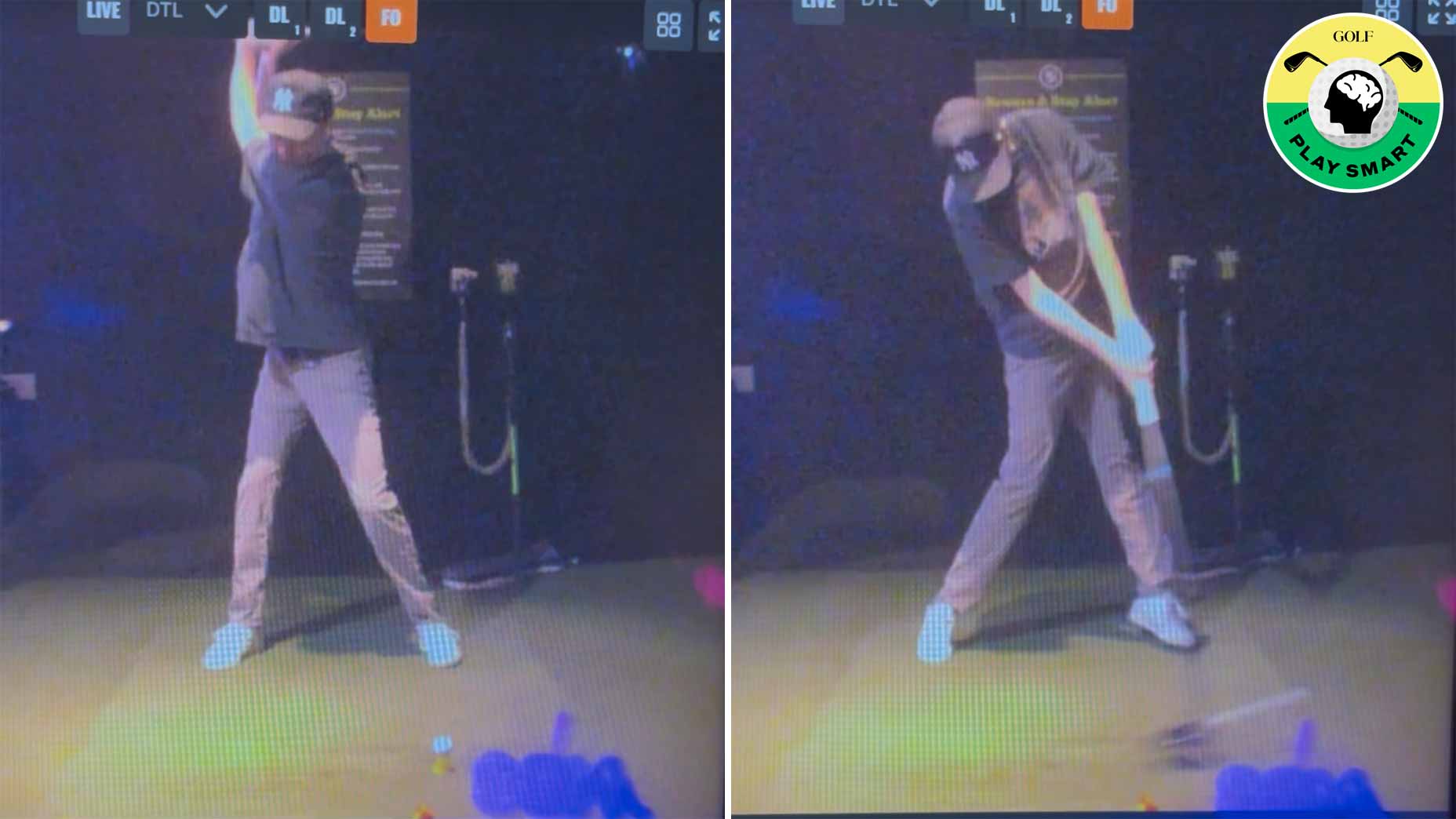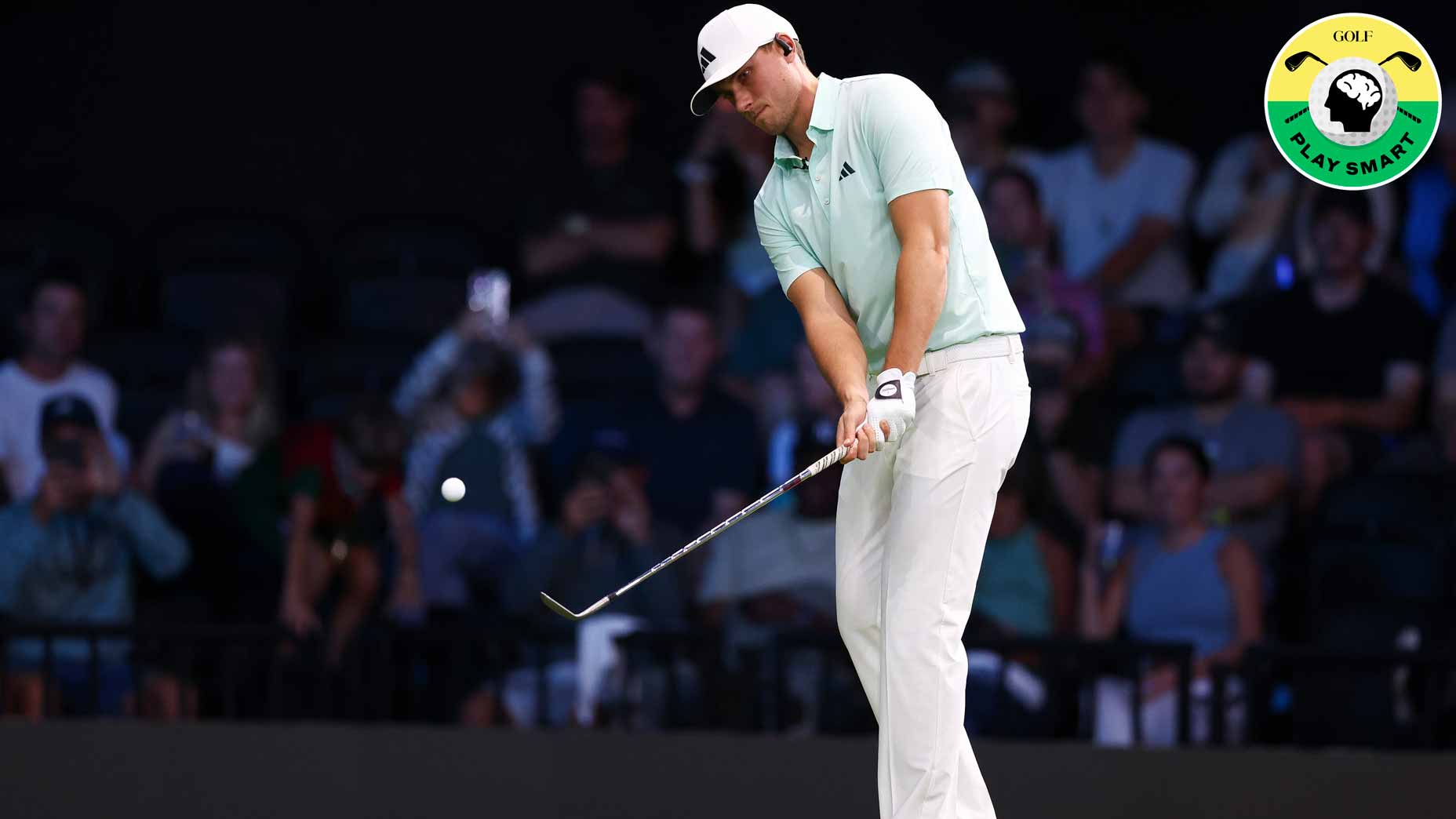Welcome to Play Smart, a regular GOLF.com game-improvement column that will help you play smarter, better golf.
Most golfers think of the golf swing in pretty binary terms — a backswing and a downswing. And while this is somewhat true, it doesn’t tell the entire story of how these two components work in tandem.
One of the big keys in a truly great swing is the transition. This comes from proper sequencing, and it’s the element that helps players generate seemingly effortless power.
When recreational golfers make their swings, they typically take the club to the top … and then make start their downswing. And while this might seem like the proper way to swing the club, it’s actually very ineffective sequencing and leaves lots of potential power on the table.
If you watch pro golfers’ swings in slo-mo, you’ll see them create tremendous coil in their bodies as they take the club to the top of the swing. They do this by starting to shift their weight to their lead side far earlier than one might think.
When looking at the best players in the world, they actually start their weight shift toward the target shortly after the shaft reaches parallel in the backswing. That means for almost half of their backswing, their weight is already shifting toward the target.
“Because the club still had some momentum and some speed, we’d see it still going back, but everything was already starting to go back [toward the target],” says GOLF Top 100 Teacher Sean Foley. “At least from under the belt.”
This is a phenomenon commonly referred to as “re-centering” and it’s a key indicator of a high-level swing. Every single pro does this move, and it helps coil the body and creates tons of potential energy that is then unleashed during the downswing.
Re-centering drill
If you want to teach yourself how to properly re-center, there’s a simple drill that can help. All you need to do is grab a club and set up like you’re going to hit a ball. But when you set up, stand with your lead foot directly next to your trail foot. Start making a swing, and then step toward the target once your shaft gets about parallel to the ground during the backswing.
“As I do that, this is still going to be stretching,” Foley says. “But now I’m stepping back and starting to create a real stretch along these fascial slings. And as I’m doing that now some of the forces that I’m going to create are also going to rotate my hip and get me to stand up.”
Do this drill a few times and you might be surprised to see how natural the movement feels. Then, once you start to make full swings, implement that same feeling of weight transfer. You’ll be amazed at how much better your sequencing becomes and how much more power you can generate.
